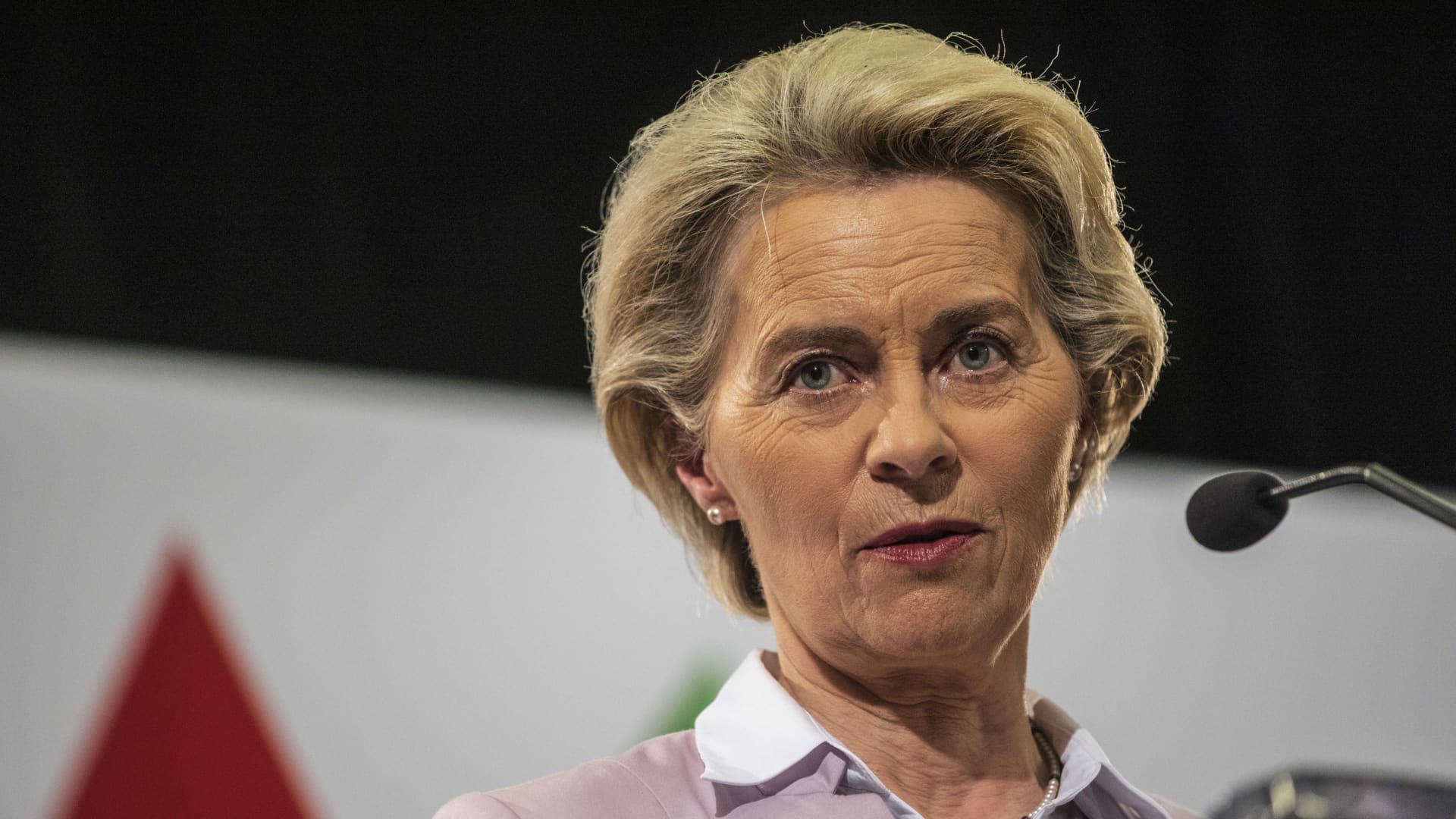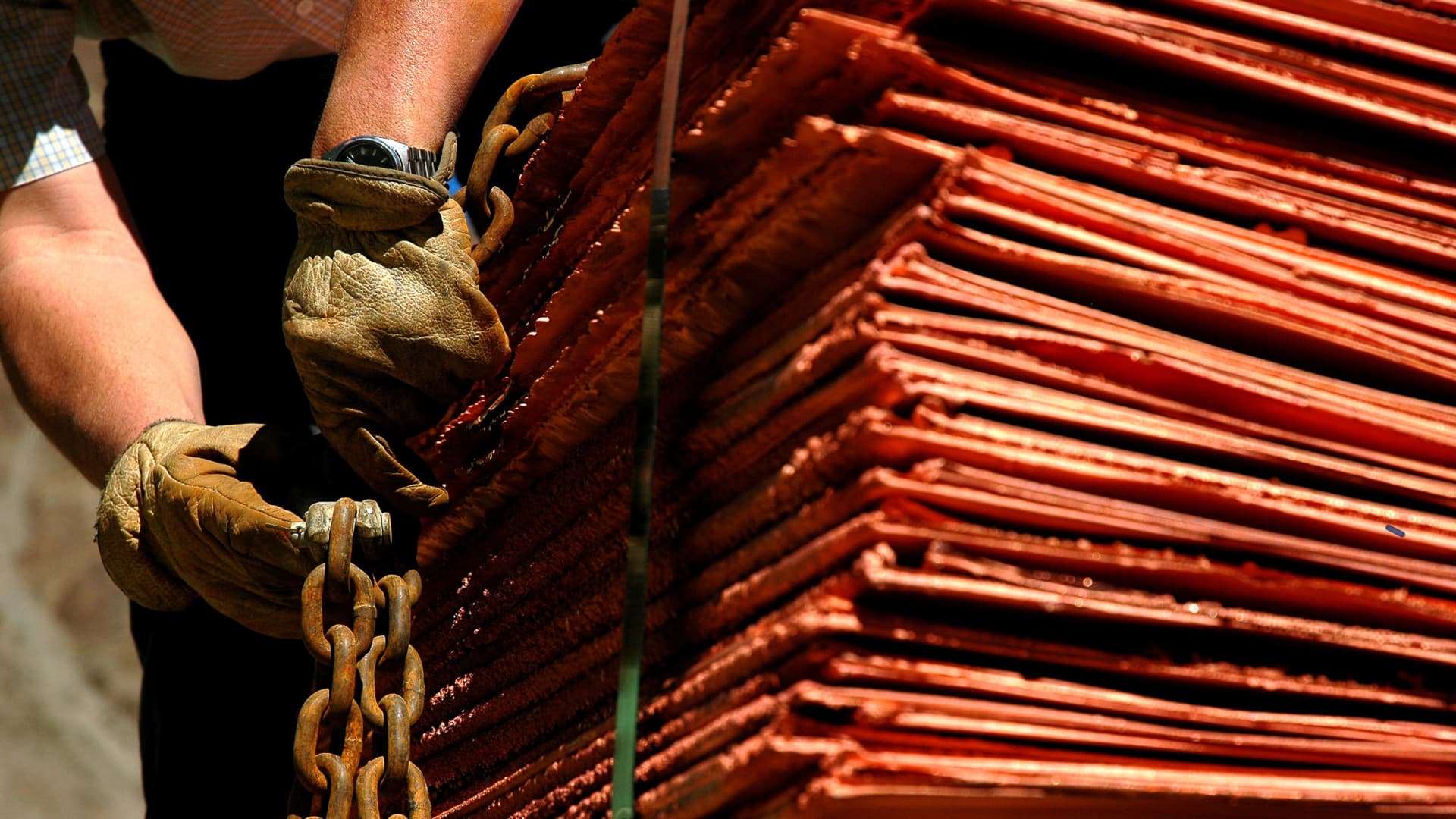Energy
Wednesday, July 20th, 2022 6:58 am EDT

European countries are being asked to curb their consumption of natural gas by at least 15% until next spring, as part of a wider plan to deal with reduced supplies from Russia.
The European Commission, the executive arm of the EU, on Wednesday presented a strategy on how countries can prepare for the winter period, when their energy needs are much higher.
The plan comes as Russia’s energy giant, Gazprom, claims it cannot fulfill gas contracts with the bloc — a major headache for European nations given they have been so dependent on Russian energy before the invasion of Ukraine.
“Russia is blackmailing us. Russia is using energy as a weapon. And therefore in any event, whether a partial major cutoff of Russian gas or a total cutoff of Russian gas, Europe needs to be ready,” European Commission President Ursula von der Leyen said at a news conference Wednesday.
Russia has repeatedly denied it’s weaponizing its fossil fuel supplies.
The plan asks the 27 EU nations to cut their gas consumption by 15% between Aug. 1, 2022, and March 31, 2023. To achieve that, the 27 EU governments will have to update their national emergency plans and report to the commission every two months on how they’re progressing toward their goals.
The commission will be able to make this target, which is currently voluntary, mandatory for all EU nations in the scenario of a severe gas shortage.
So far, 12 member states have been hit by reduced gas flows and a couple more have been totally shut off from Russian supplies.
Von der Leyen said that it is a “likely scenario” that Russia will completely shut down its supplies to the bloc. As a result, she added that any disruption would have consequences for all countries irrespective of their energy needs. It is therefore “important that all member states contribute to the saving, the storing and are ready to share gas” with EU nations that might need it.
The European Union has been preparing for the eventuality of a total shutdown in gas supplies from Russia in the wake of Moscow’s onslaught in Ukraine. However, the level of preparedness seems to be intensifying as concerns grow that Russia will indeed substantially reduce flows to Europe, or even end them completely.
The Nord Stream 1 pipeline — a key transit point for Russian gas to Europe — has been closed to undergo maintenance work until July 21. However, many European officials are skeptical that flows will restart at full capacity.
Gazprom said Monday that it cannot fulfill gas contracts with Europe due to unforeseeable circumstances. Germany’s energy firm, Uniper, rejected Gazprom’s argument.
This latest development added to previous concerns that Russia is nearing a complete shutdown of gas supplies to Europe after flows were already 60% lower last month.
“Russia is intensifying its commodities war against Europe by freezing gas supplies through Nord Stream 1,” Velina Tchakarova, director at the Austrian-based think tank AIES, told CNBC.
She added that this move from Russia “must be seen as a harbinger of a total gas embargo ahead of the winter season, as European storage capacities are not filled to the required extent, and the governments of European countries heavily dependent on Russian gas supplies will come under immense economic pressure.”
European economies are already facing a bleak economic outlook with inflation at record levels and growth suffering constant downward revisions. A big part of this economic reality is caused by the energy crisis, greatly accentuated by Russia’s war in Ukraine.
The upcoming plan to prepare for the winter comes as the commission is also stepping up gas deals with other parts of the world. On Monday, it announced a new agreement with Azerbaijan and it has previously signed deals with the United States.
Europe’s energy commissioner, Kadri Simson, said in June that the gas filling level was over 56% but some member states needed to make more progress in the coming weeks to improve their capacity levels. Back in March, the commissioner had asked for a minimum storage target of 80% by Nov. 1.
This post has been syndicated from a third-party source. View the original article here.




